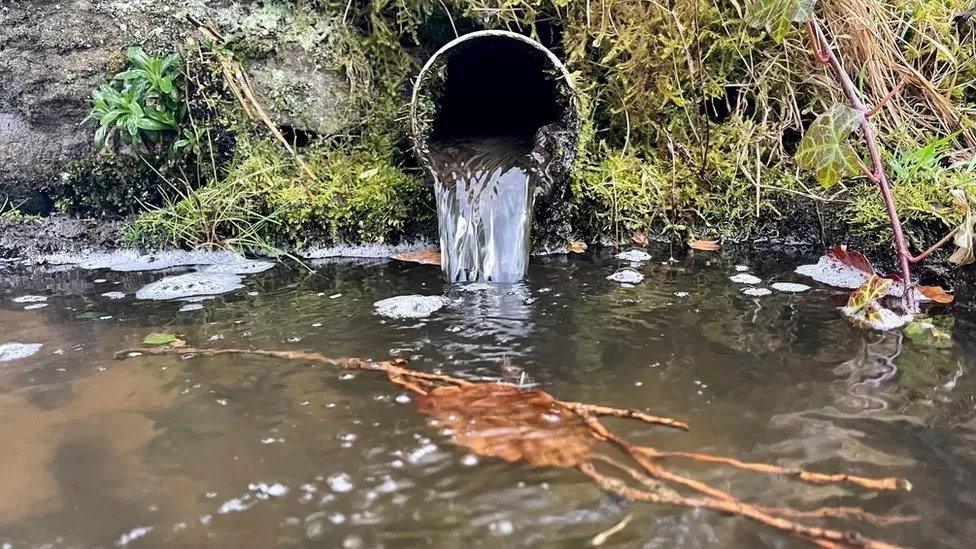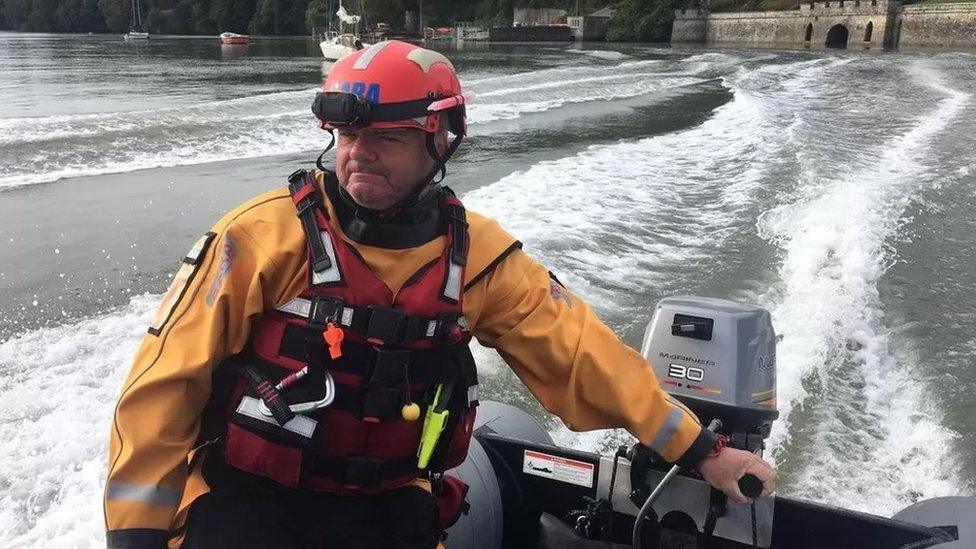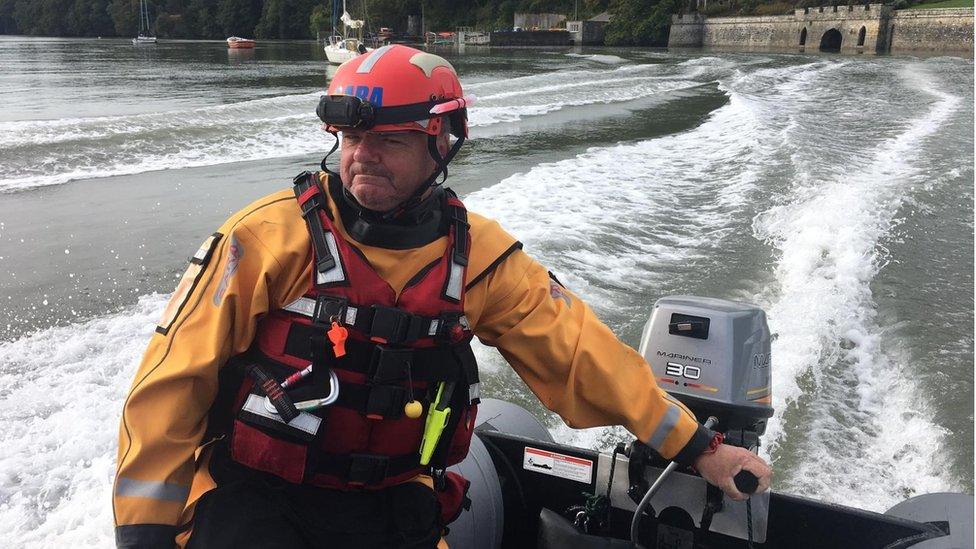Water firms allowed to 'get away with polluting rivers'
- Published

Whistleblowers said the Environment Agency failed to stop firms pouring raw sewage into England's rivers
The Environment Agency (EA) has been accused of allowing water firms to pollute England's rivers.
Whistleblowers said it ignored its duties and failed to stop firms pouring raw sewage into the country's rivers.
The claims feature in the film "SEVERN: the poisoning of Britain's Amazon", which focuses on the River Severn in Gloucestershire.
However, the EA said it was "holding the industry to account on an unprecedented scale."
It admitted the water quality and ecological health of the country's rivers "must improve".
To do this it said it was in the process of "writing an action plan for the River Severn, to address how we can help salmon in the Severn recover stocks to a sustainable level".
Speaking anonymously in the film, several whistleblowers - including current and former EA officers — told the film the regulator was ignoring its duties and failing to hold water companies to account.
Enforcement action 'unused'
One said the situation made it "hard to represent" the EA and "impossible to influence the work".
And should it continue, they warned that England risks relying on voluntary measures and self-regulation to prevent illegal sewage discharges.
Another insider claimed the regulator was "the biggest threat to the future of water quality".
"Any changes in how water quality is regulated will be because of the public outcry, not because the Environment Agency suddenly considers water quality a priority," they added.
Current and former employees claim regulations allowing the EA to take enforcement action are in most cases unused.
The film - by environmental media organisation ENDS Report - focused on the Severn, as it is the longest river in Britain and its "issues reflect the state of pollution problems".
Around 400 rivers, 29 lakes and 33 groundwater bodies make up the Severn estuary. Just 45 were found to be in good ecological condition in the EA's last assessment in 2019, it said.

'I became severely ill'

Lifeboat instructor David Deveney became "severely ill" after swimming in the River Severn and River Wye
Lifeboat volunteer David Deveney spent days in hospital after contracting a parasitic infection linked to sewage after a river training exercise on the Severn two years ago.
He suffered giardiasis after spending two hours in the river and said an investigation found an 80% chance it came from human sewage.
Speaking to BBC Radio Gloucestershire, he explained: "I became severely ill and had to be hospitalised two years ago after conducting training sessions between the River Severn and River Wye.
"I couldn't keep anything in or down - I took samples which went to the GP - who said I had become ill after consuming human waste.
"In total, I had to take three weeks off work.
"We now try and limit the amount of time people spend in the water and have strict guidelines for people to follow.
"We have very strict decontamination procedures we have to follow where crew and all boats are disinfected."

Rachel Salvidge, from ENDS Report, accused regulators of "pulling back from their regulatory role and polluters are not being held properly to account".
"We hope to further expose how serious the situation is," she added.
"Urgent changes must be made to enforce regulatory standards in our rivers. Water companies should not be allowed to continue behaving like this."
In 2021, there were more than 20,000 reports of water firms disposing untreated sewage into the River Severn alone, ENDS Report claimed.
In a statement the EA said: "We are in the process of writing an action plan for the River Severn to address how we can help salmon in the Severn recover stocks to a sustainable level.
"This includes regulation, advice and actions for all sectors who have an impact on the river."
A Severn Trent Spokesperson said they take their role in protecting the region's rivers extremely seriously.
The firm said rivers were currently the healthiest they've been since the industrial revolution and it was investing £100m a year to further improve water quality.

Follow BBC West on Facebook, external, Twitter, external and Instagram, external. Send your story ideas to: bristol@bbc.co.uk , external
- Published16 April 2022
